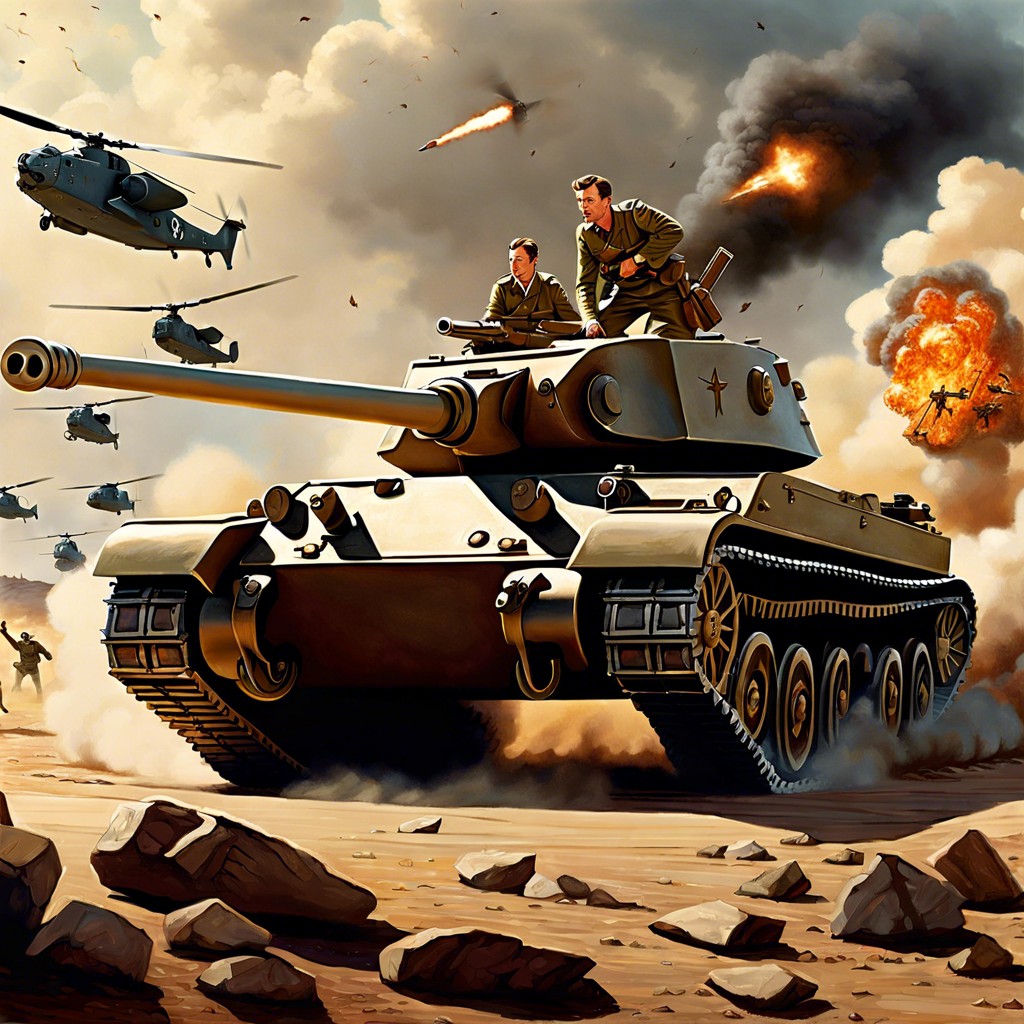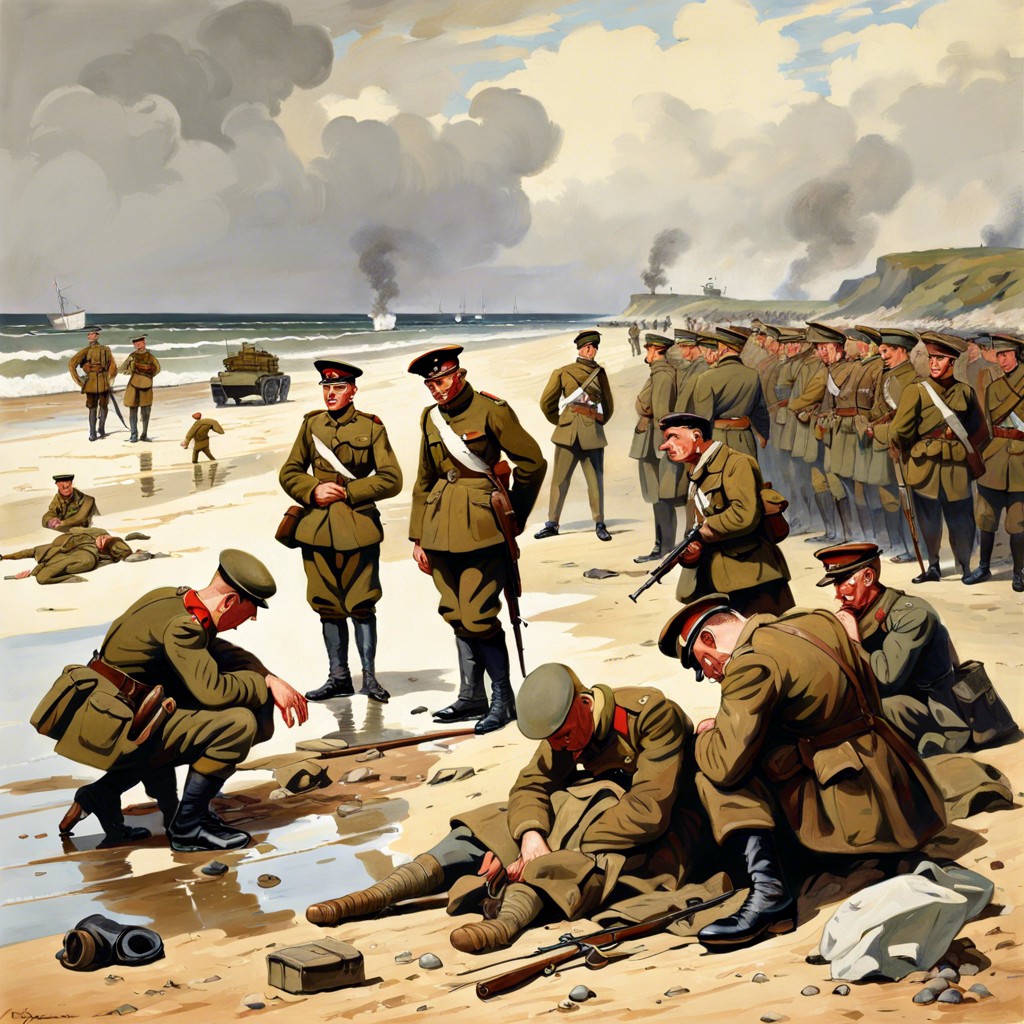Discover how a world without World War I could have drastically altered the political landscape, technological advancements, and social structures we know today.
Imagine a world where World War I never erupted. The political chessboard could have remained more stable, offering fewer opportunities for revolutions and power shifts. Technological innovations might have taken a different pace, potentially lacking the dark motivation of warfare. Social structures would have evolved in ways unrecognizable to us today. Picture an economic landscape untouched by the scars of war, with trade flourishing uninterrupted. Dive into this alternative history to discover how the world as we know it could have taken a wildly different path.
Key takeaways:
- Stability in political landscape with longer-lasting empires and alliances.
- Slower pace of technological advancements without war-induced innovations.
- Social progress unimpeded by wartime distractions, leading to different cultural developments.
- Altered global power dynamics with potential superpower shifts and longer colonial dominance.
- Economic implications show less debt, continued trade growth, and slower rise of economic superpowers.
Political Landscape: Shifts and Stability

Imagine a world where Archduke Franz Ferdinand had an excellent GPS. Without the assassination catapulting Europe into chaos, empires might have continued their wobbly dance of precarious peace. Monarchies like the Austro-Hungarian and Ottoman Empires could’ve clung to power longer, giving us more fancy hats and strange borders on today’s maps.
Democratic movements might have progressed at a snail’s pace, with royals and aristocrats sipping tea while occasionally trying to tweak the political game. Forget about the radical changes of the Russian Revolution; the czars might’ve been around for another round of vodka—or three.
Nationalism, instead of exploding into a full-blown conflict, might’ve remained a murmur in the background, sparing countless lives but possibly sidelining emergent national identities. Fewer bandstands would mean more diplomatic tea parties, and who knows? We might be arguing about whose mustache was more magnificent, rather than borders.
Meanwhile, alliances like the Triple Entente and Triple Alliance might have quietly dissolved or morphed, rather than plunging into war. The League of Nations, if it ever existed, would probably be as numerous and action-packed as a knitting club, without the urgency brought on by the devastation of war.
Technological and Industrial Development
Imagine a world where inventors and industries weren’t sparked into a frenzy by the fires of war. Sure, necessity is the mother of invention, but what about its quirky cousin, peace?
- Air Travel: Without WW1, aviation might have taken its sweet time to get off the ground. The Wright brothers would still be legends, but jumbo jets? Maybe they’d be just a pipe dream in the 1920s.
- Medicine: Penicillin’s grand debut was war-induced. In a world without the conflict, antibiotics might’ve hit the scene decades later. Think about the sniffles evolving unchecked!
- Automobiles: The need for mass production during the war gave us assembly lines. Without it, cars might’ve remained the playthings of the elite a bit longer.
- Communication: Wireless tech saw significant leaps thanks to wartime demands. Imagine still marveling at telegrams in the 1930s and cell phones? Ha, good luck.
- Industrial Output: Factories would still hum with the gentle whirr of peacetime production – no overnight transformations into weapons facilities, meaning more toasters, fewer tanks.
It’s a roller coaster of what-ifs, but one thing’s for sure: the 20th century would’ve been a tad less turbocharged. But hey, who doesn’t love a leisurely cruise sometimes?
Social Changes: A Different Evolution
Imagine a world where the Suffragette movement didn’t have the wartime pause. Women’s rights might have progressed faster, without the cataclysmic distractions of a global conflict. People could’ve been too busy marching for votes and equality instead of rationing and rebuilding.
Consider the African-American Great Migration. It might have occurred more gradually, avoiding the immediate and drastic economic shifts driven by wartime labor needs. Cultural hubs like Harlem may have developed differently, with jazz and blues spreading at a different rhythm.
Art movements, such as Dadaism, birthed from war’s chaos, might have taken alternate forms, driven more by peaceful rebellion than wartime disillusionment. Picasso’s ‘Guernica’? Still a jumble of cubes.
Families wouldn’t be fragmented by war losses, keeping societal structures more intact. Generations would grow without the shadow of loss altering dynamics. Plus, holidays like Remembrance Day? Picture parades featuring optimism, not memory of battlegrounds.
In this parallel universe, a whole constellation of social norms and cultural milestones shifts ever so slightly—like a kaleidoscope with just one twist changed.
Global Power Dynamics
Russia might have avoided its chaotic revolution, possibly transforming into a superpower earlier, altering the course of history more dramatically than a cat with a time machine.
Without the Treaty of Versailles, Germany would not have been saddled with crippling reparations, potentially preventing the rise of extremist ideologies. Imagine a Europe without the jittery resurgence of postwar nationalism, kind of like an anxiety-free yoga class for nations.
The British Empire, not drained by the war’s expenses, could have seen a prolonged dominance, maintaining its colonies longer. Picture Queen Victoria smugly sipping tea, her empire still sprawling as far as the eye can see.
In the U.S., the war catalyzed its ascent to global prominence. Without it, America’s rise might have been slower, keeping it busily immersed in its own continental dramas like an overbooked reality TV show.
Colonialism’s decline would likely have been slower, delaying the wave of independence movements in Asia and Africa. Picture a world where the decolonization struggles occur decades later, like a coffee date perpetually rescheduled.
Japan’s military expansion might have been tamed, potentially avoiding a trajectory leading to conflicts in the Pacific. It’s like Japan could have zigged instead of zagged, maybe perfecting sushi instead of battleships.
Economic Implications and Trade
Europe’s economy wouldn’t have been driven into the crippling debt and reconstruction costs that followed the war. Nations might have continued focusing on technological and industrial advancements rather than military expenditure.
Trade routes and international commerce likely would have expanded more rapidly. With fewer blockades and less destruction, shipping and trade infrastructures would’ve remained robust.
Colonial exploitation might have persisted, maintaining old economic hierarchies; however, native economies could have possibly advanced at a different pace due to ongoing external influences.
The United States, which emerged as an economic powerhouse post-WW1, might have had a slower rise to prominence. European dominance in global markets could have remained unchallenged for a longer period.
Currency stability might have been greater, avoiding hyperinflation episodes like the one in post-war Germany, which disrupted global markets.
In essence, the financial landscape would look quite different. Less debt, more trade, unchanged power balances, and perhaps a different economic superpower narrative!




